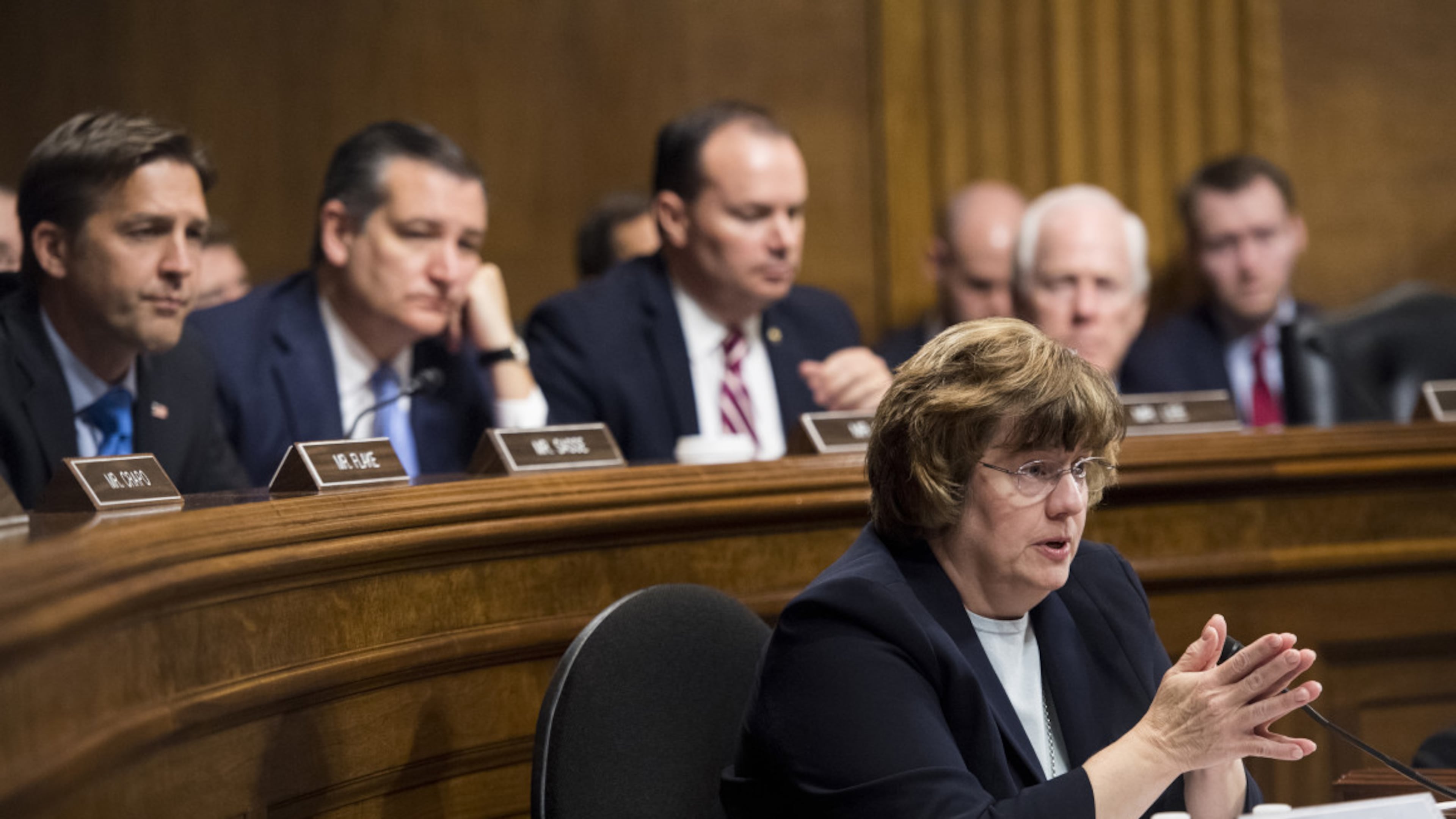Opinion: A prosecutor embarrasses herself

In a five-page memo addressed to the Republican senators who hired her, prosecutor Rachel Mitchell assesses allegations raised by Christine Blasey Ford against Brett Kavanaugh and basically dismisses them, citing a lack of collaborating evidence and supposed inconsistencies in Ford's testimony.
“I do not think that a reasonable prosecutor would bring this case based on the evidence before the committee,” Mitchell writes. “Nor do I believe that this evidence is sufficient to satisfy the preponderance-of-the-evidence standard.”
That’s a potentially powerful statement, especially given that in her day job, Mitchell serves as head of the county Special Victims Division in Phoenix, Ariz., and has years of experience in that role. Given the caveat she includes -- “based on the evidence before this committee” -- she may even be right.
Nonetheless, I do have a few questions:
If a woman came to Mitchell’s office in Phoenix claiming sexual assault, would Mitchell publicly dismiss the woman’s allegations without first interviewing both the key eyewitness and the alleged assailant? Wouldn’t that be standard operating procedure? Put another way, when investigating a “she said, he said” case, would prosecutor Mitchell be comfortable reaching her conclusion without ever hearing or assessing the “he said” part? Is that how a professional would do it?
Because amazingly, that's what she has done here.
As head of the special victims unit, would Mitchell write and release a lengthy, one-sided memo attacking small inconsistencies in the alleged victim’s story, while literally writing not one paragraph, not one sentence, not one word on inconsistencies and even lies from previous statements by the alleged assailant? Would she treat those inconsistencies and lies as not even worth addressing?
Because she does that here.
When Mitchell writes that she would not recommend prosecution “based on the evidence before the committee,” would she take into account the fact that “the evidence before the committee” is paltry because the investigation itself has been paltry, conducted by partisan Senate staff without training or experience in sex crime prosecution and with no real goal of getting at the truth? As a professional, would she be comfortable basing a conclusion solely on that kind of amateur, biased, truncated investigation?
She did that here.
Would Mitchell make a public statement exonerating the alleged attacker and condemning the alleged victim while FBI agents were still out in the field, conducting interviews with a few critically important witnesses who should have been interviewed long before? In her role as a professional prosecutor for Maricopa County, would she really announce her conclusion before the evidence was even assembled?
In this case, she has.
In her job as prosecutor, would Mitchell accept being allowed to fully interview the woman complainant in a case, while being shoved aside and silenced by defenders of the alleged assailant when his turn came to be interviewed? Would that kind of brutal power play be accepted in a sexual assault investigation in Arizona?
Because as we all saw last week, that's exactly what happened in the Senate Judiciary Committee. Once Mitchell began interviewing Kavanaugh, Republican senators rushed to reclaim their time, not allowing her to ask another question of the man they were clearly trying to protect.
And if the alleged assailant defends himself by saying he never, ever got too drunk to forget, yet documentary evidence and considerable eyewitness testimony say otherwise, wouldn’t that be cause to question the assailant’s veracity and story? Wouldn’t that raise a series of red flags, including what else he might be lying about?
Not in this case it didn’t.
Overall, would Mitchell reach conclusions about a case that she had not been given either the time, staff or authority to fully investigate? As head of a special victims unit, would she serve as a hired prosecutor against only the alleged victim, treating only HER account with suspicion, assessing only the inconsistencies in HER story while ignoring more serious gaps in HIS story?
Because to Mitchell’s eternal professional shame, she did that here.
